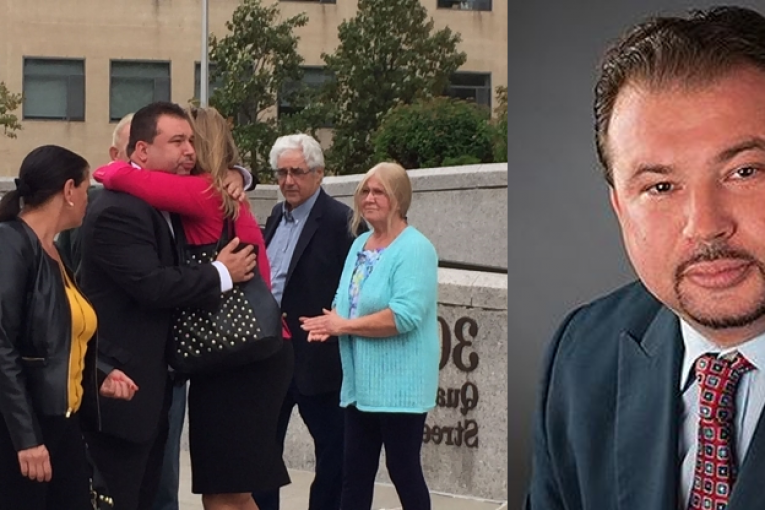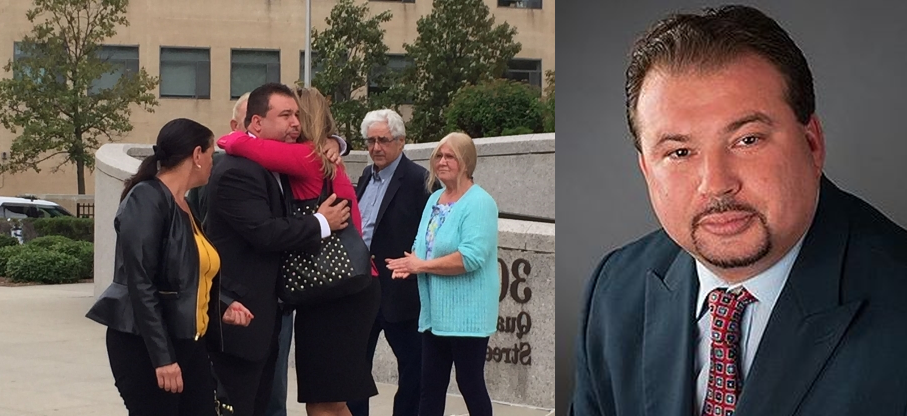

When a motion to suppress came forward in the Daniel Marsh case about five years ago, I was alarmed to discovered that they took the young man, barely 16, interrogated him for about five to seven hours, and denied his requests for his mother and attorneys.
Not surprisingly, he finally broke. He told the police everything about plotting, torturing, and murdering the elderly couple. He talked about how he seemed to take pleasure in the horrific act.
Prior to his confessing, the police did not have evidence as to who tortured and killed the elderly couple in early 2013. After he confessed, they obtained search warrants and found a massive amount of evidence.
Mr. Marsh undoubtedly committed those crimes – but what always bothered me is what if he hadn’t? Would they have gotten a kid to falsely confess here? How could an otherwise reasonable judge, Judge Dave Reed, in 2014 when we knew about things like false confessions, have said that a child – willingly, intelligently and knowingly – waived his rights and confessed?
In this case, they were fortunate that the guilty party confessed, but the system didn’t work here, it simply got fortunate.
One of the amazing things we have learned definitively, as 2400 people who have been wrongly convicted have been freed since 1989, is that people confess to crimes that they have not committed.
It sounds preposterous. But the research is convincing. NBC News and Lester Holt took this on this week. They interviewed Saul Kassin, among the nation’s leading experts on false confessions.
“False confessions don’t just happen to certain types of people,” said Saul Kassin, a psychology professor. “It can happen to anybody.”
The Innocence Project and the National Wrongful Convictions registry have found that 28 percent of exonerations obtained from using DNA evidence involved defendants who made false confessions.
That’s important because, for the most part, DNA evidence provides solid, indisputable scientific evidence of innocence, and at the same time demonstrates convincingly that wrongful convictions do occur.
As the Innocence Project writes: “According to research, lying about evidence increases a suspect’s likelihood of falsely confessing. This effect is even stronger for the innocent, who may confess with the expectation that once this evidence is tested, they will be freed. Unfortunately they don’t know that a confession is all the court needs.”
One of the big factors in false confessions is that police are allowed to lie to suspects about the evidence they have.
As Saul Kassin explains, “Imagine you’re 14, 16, 17 years old or, at the moment the crime happened, you were drinking. And imagine now you’re being told that your fingerprints were found at the … at the scene, or imagine you’re told that the victim’s blood was found on your pillow, or that you failed a polygraph, which is infallible.”
In some cases, they have even been known to lie about the results of the polygraph – telling the suspect that they failed it when they passed.
“Now, you may actually start to wonder, ‘Wait a second. You claim you have this objective evidence and the police can’t lie, right?’ is what the average person thinks.”
He said a typical interrogation can take up to four hours, but false confessions cases have had interrogations of up to 20 hours.
“People have a breaking point. And time breaks people down,” Professor Kassin said. “Time brings with it fatigue, a deprivation of certain need states. Particularly important is that people being interrogated are sitting alone in a room; no friends, no family, not a lawyer present.”
This has real world consequences. It leads to false confessions.
One of them is a man named Jeffrey Deskovic. I have gotten to know Mr. Deskovic this year. He’ll be our keynote speaker next month. He just finished law school.
He is also about a year younger than me. And, so at the age of 16 in 1989, he was arrested for the rape and murder of his classmate in Westchester County, New York.
They interrogated him for six to seven hours.
“Being desperate to get outta there, I latched onto that false promise, and I made up a story based on the information which they gave me in the course of the interrogation,” Mr. Deskovic told NBC News.
Despite DNA that even at that time showed he did not commit the crime, he was convicted on a recanted confession that was not videotaped and spent 16 years in prison.
Finally, he was exonerated in 2006 based on a re-examination of DNA evidence, after the Innocence Project took on his case. His conviction was later overturned.
NBC reports: “A 2007 report from the Westchester County District Attorney on Deskovic’s case said adolescents are ‘at a higher risk for confessing to a crime they did not commit.'”
The report also noted that “the police failure to create a complete taped record of their interrogations of Deskovic was likely a major cause of this erroneous conviction.”
Recently I interviewed Mr. Deskovic in a podcast:
And you can see him speak on October 26 – as he is our keynote speaker. http://progressive-prosecution.eventbrite.com
—David M. Greenwald reporting






